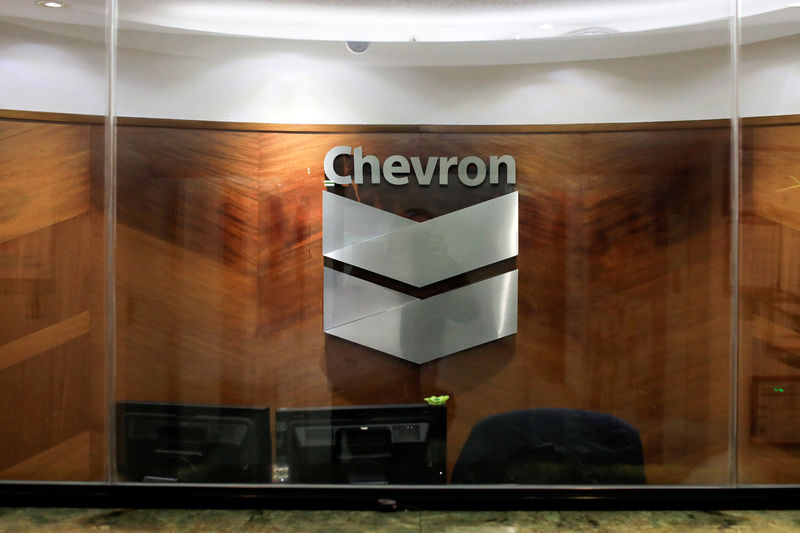By Timothy Gardner
WASHINGTON (Reuters) - The Trump administration on Friday renewed Chevron Corp's (N:CVX) license for three months to drill for oil in Venezuela despite sanctions, a compromise between officials seeking maximum pressure to oust socialist President Nicolas Maduro and those favoring a longer renewal for the company.
The Treasury Department renewed the license through Oct. 25 for Chevron, the last U.S. oil company operating in OPEC member Venezuela.
In January, the United States imposed sanctions on Venezuela's state-run oil company PDVSA in an effort to oust Maduro. But it issued Chevron, which has been in Venezuela for nearly 100 years, a six-month license to operate.
Washington supports opposition leader Juan Guaido, head of the National Assembly. The sanctions on PDVSA have cost Maduro's government billions of dollars in oil assets.
A senior Trump administration official said most U.S. agencies had argued against any renewal of the license, and the Treasury Department had pressed for a full six-month renewal.
"Ultimately what came about was a compromise position," amid concerns from President Donald Trump about staying tough on Maduro, the official said.
Chevron has four joint ventures with PDVSA that produce the equivalent of about 200,000 barrels per day of oil, and its stake in the ventures recently produced about 40,000 bpd.
Chevron has about 8,000 employees, contractors and direct suppliers involved in the ventures. "Our operations in Venezuela continue in compliance with all applicable laws and regulations," Chevron spokesman Ray Fohr said in a release.
NO CRUTCH FOR MADURO
The Treasury Department also renewed licenses for three months for oil field service companies Halliburton Co (N:HAL), Schlumberger (N:SLB), GE's Baker Hughes (N:BHGE) and Weatherford International.
Tweaking the language from the original license, the department said the renewals were granted for "maintenance of operations" in Venezuela, showing companies were not allowed to expand their local operations.
"We want to make sure we're giving them an opportunity to maintain a foothold but we don't want them to become Maduro's crutch," the senior official said. The three-month period signals that any further extensions after late October will be harder for companies to come by, the official said.
An analyst said U.S. presidential politics could make it harder to get renewals going forward.
"As we got closer to the 2020 presidential election, I see the Trump administration wanting to get tougher," said Joe McMonigle, senior energy policy analyst at Hedgeye in Washington and an Energy Department official under former President George W. Bush.
Some administration officials believe having a U.S. company in Venezuela would be an asset after any ouster of Maduro, a beachhead to aid recovery of Venezuela's oil dependent economy. Other officials, including national security adviser John Bolton favored letting Chevron's license expire in hopes it would dent energy production and tighten the noose on Maduro's leadership.
A U.S. State Department spokesman said Washington "will continue to take appropriate action against Maduro and those aligned with him."

As of July, Venezuela's output was just 734,000 bpd, about half of what it averaged in 2018, prior to U.S. sanctions, when production was 1.4 million bpd, according to OPEC figures.